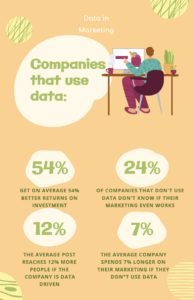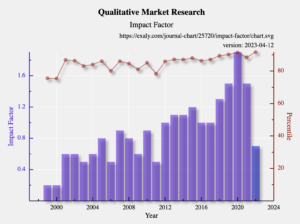Market Research: The Top 3 Secrets That Will Help Your Business Explode
The best person I’ve ever met at market research asked me a great question.
In the years that followed, it’s doubled up as an interesting question to ask business owners.
In particular, small business owners.
And when you do, the answer is as surprising as it is terrifying.
If you wanted to work the odds, there’s one response that you’d put your money on.
Because it comes up almost every time business owners get asked the question.
So let’s start with the question.
The question that leaves small business owners stumped.
Scratching their head and wondering how they should answer.
…how much do you know about your customers?
How much do you know about your customers?
The scary thing is, most small business owners know very little about their customers.
Even when they know them by name.
It’s no good knowing what your customer is doing this weekend if it isn’t relevant to your business.
Especially when there are other pieces of information that could help you in a huge way.

Market Research – Why you should use data!
Can you imagine what decisions you would make if you knew the answer to these 5 questions…
What kind of income do they have?
How do they find a business like yours if they want to buy?
And what are they doing at the exact moment that they decide to buy?
Let’s break them down, one by one.
Who are they?
If you know exactly who your customers are, it makes everything else easier.
It makes getting in touch with them easy.
You’ll know what the right thing to say is because you know who they are.
After all, you wouldn’t write the same copy for these two groups of people.
An 18-year-old boy that loves football and clubbing.
And an 87-year-old woman that loves her grandkids and soap operas.
What makes them tick?
It’s impossible to know without knowing who they are.
So that first question is important.
Then imagine the difference it would make when you know the answer to “what makes them tick.”
You can use that to make sure the strategy that you are choosing is the right one.
If it’s the 18-year-old boy that loves football, you know you can write about football.
And you can advertise during halftime at his favourite team’s next home game.

Market Research – What Makes Them Tick?
What kind of income do they have?
If you provide a luxury product, then advertising to EVERYONE to get ANYONE isn’t going to work.
Nor will it work if you’re a cheap brand.
Understanding who your audience is and what kind of income they make can pay off big time.
You have to understand how much they can afford.
If you don’t, you could be pricing yourself out of the market.
How do they find a business like yours if they want to buy?
Can you imagine how much easier marketing would be if you knew the answer to this?
Most business owners don’t.
Not only do they not know, but they also guess, and then claim that they know.
Being in denial can be deadly.
Because it means you are less likely to change.
But if you did know how they find a business like yours when they are ready to buy, it could change everything.
If you asked 1000 people this question, and they came back and said “Google”, you know what you need to focus on.
They might say, “I’d ask around”.
If they do, you know you need to focus on referrals.
But the scary thing is, most business owners don’t ask.
And it can be devastating.
What are they doing at the exact moment that they decide to buy?
This question can help you decide what to write in your copy.
And it can also help you craft an offer.
But what might be the biggest benefit of asking this question, is if you could put yourself there.
In the exact place that they are when they make a decision to buy.
Why do you think supermarkets place all the appealing, easy-to-buy treats next to the tills?
Because they want them to be there, at the exact moment the buyer makes a decision.
If those treats were 5 yards away, on the other side of the till.
So that you only see them once you’ve already paid.
So let’s take a look at the big picture.
Imagine knowing the answers to those 5 questions.
You’ve done the market research and now you know so much more about your customers.
How could you use that information?
And how would it help your business?
Market Research For Small Business Owners
Market research is a critical component of small business growth. It involves the process of gathering and analysing information about a particular market.
That includes the target audience, competitors, and industry trends.
You can use this information to make informed decisions about marketing.
In fact, it will put you well ahead of the curve.
In a way that your competitors can’t compete with.
Because small business owners are always rushing to get started.
Instead of getting it right.
You can also do your market research when it comes to product development.
For small businesses, market research is important.
When it’s done well it helps to identify opportunities for growth.
It will also help assess potential risks and challenges.
Market research gives you data.
And it’s hard to argue with data.
When you make subjective or emotional decisions, their based on opinion.
Meaning the decision is often flawed.
When you make a data-based decision, the answer is often obvious.
And much harder to argue with.
Market research can also help businesses to identify gaps in the market.
It might be things that they can capitalise on.
Or it could be the exact opposite.
The data could show you competitive threats that you need to be aware of.

Market Analysis
The Purpose Of Market Research
The main point of market research is to gather information about a particular market.
That might include the target audience, industry trends, and competitors.
By reviewing the data, businesses can make informed decisions.
They might make decisions about product development, marketing strategies, or other business decisions.
Because numbers don’t lie.
There are four main purposes of market research. The first is to:
Identify market opportunities.
That involves researching potential customers and identifying unmet needs.
It can help spot gaps in the market that businesses can capitalise on.
You should understand the needs of your target audience.
Then you can develop products and services that meet their needs.
And gain a competitive advantage.
The second purpose of market research is:
To assess market demand and trends.
This involves gathering data on customer behaviour.
That includes what they buy, when they buy it, and why.
When you understand the demands and trends, you understand what you need to do next.
The third purpose of market research is to:
Analyse competitors.
This involves researching competing businesses and analysing their strengths and weaknesses.
Then you’ll understand what your competitors are doing well and where they fall short.
You can make a decision then.
Do you want to act on it and become strong where they are weak.
The final purpose of market research is to:
Test marketing effectiveness.
This involves gathering data on the effectiveness of marketing campaigns.
That might be your campaign.
It might include how customers respond to advertising, pricing strategies, and promotions.
By reviewing that data, businesses can refine their marketing strategies.
That way they can better reach their target audience and increase sales.
Types Of Market Research
Market research is only becoming more impactful.
That’s because it’s easier to reach thousands of people at a time.

The impact of market research
With that being said, it’s becoming more attractive.
Therefore, it’s never been more important to understand market research.
One thing to understand is the different types of research that you can do.
You can break market research down into three types.
Exploratory research, descriptive research, and causal research.
Each type of research serves a different purpose.
But all 3 provide businesses with unique insights.
That could be insights into their target audience, industry trends, and competitors.
Exploratory research
Exploratory research is the first type of research in the market research process.
We use it to gain a general understanding of a market or problem.
It’s often conducted when a business has limited information about a particular topic.
The goal of exploratory research is to generate ideas.
You can test those ideas in later stages of the research process.
Descriptive research
Descriptive research is the second type of market research. We use it to describe the characteristics of a particular market or problem.
Descriptive research provides businesses with information.
It might be on the size of a market, customer demographics, or purchasing behaviour.
The goal is to provide businesses with an understanding of their target audience. s
Then they can develop more effective marketing strategies.
Causal research
Causal research is the third and final type of market research. We use it to determine cause-and-effect relationships between different variables.
Causal research is often used to test ideas from earlier stages of the research process.
The goal of causal research is to provide businesses with actionable insights.
They can use the insights to improve their products and services.
It’s key to understand the different types of market research and when to use them.
When you do, you can make informed decisions.
It might be about your marketing strategies or business goals.
Every type of research will give you a unique view.
Then you can use the learnings to help the business grow.
How to collect the data for your market research
There are two main methods for collecting market research data.
Primary research and secondary research.
Primary research involves gathering data from customers.
While secondary research involves analysing existing data sources.
Things such as government reports, industry publications, and competitor information.
There are various methods for collecting primary research data. Surveys are one of the most common methods.
Surveys
You can run them online, over the phone or in person.
Surveys often involve asking customers a series of questions.
It’s a great way to gain insight into their opinions and behaviours.
Another method for collecting primary research data is through interviews.
Interviews
Interviews involve conducting one-on-one conversations with customers.
It can be useful to gain more in-depth insights into their thoughts and behaviours.
You can conduct interviews in person, over the phone, or via video calls.
Focus Groups
Focus groups are another method for collecting primary research data.
They involve bringing together a small group of customers.
The group would discuss a particular topic or product.
The goal of focus groups is to gather more data on customer attitudes and opinions.
Observation
Observation is another method for collecting primary research data.
It involves watching and recording customer behaviour in a natural setting.
It might be at a store or on an online browsing session.
Observation can provide insights into how customers interact with their products and services.
In summary, there are various methods for collecting market research data.
Each with its own strengths and weaknesses.
It’s important to understand the different data collection methods.
Then your business can gather valuable insights.
Things that might help with the decision-making process.
Or it could help you gain a competitive edge in your industry.
An example of market research
One example of a successful market research campaign is the launch of the iPhone by Apple.
Before the launch, Apple conducted extensive market research to understand their customer.
They wanted to know their preferences and how they behaved.
The research helped Apple to identify a gap in the market.
The gap was for a smartphone that was easy to use, pleasant on the eye, and had a range of useful features.
Apple also conducted market research to understand how customers perceived the brand.
And how they could position the iPhone in the market.
The research helped Apple to develop a strong unique selling proposition.
The results of this market research campaign were impressive.
The iPhone was an immediate success.
With sales exceeding expectations in the first year of its launch.
Today, the iPhone remains one of the most popular smartphones in the world.
And Apple continues to innovate and improve their products.
All based on customer feedback and market research.
The 5 P’s
The Five P’s of market research are product, price, place, promotion, and people.
They are important factors that businesses consider when conducting market research.
Product refers to the product or service you offer the customers.
Market research can help businesses understand customer preferences.
Then you can identify opportunities for product improvement or development.
Price refers to the price point of the product or service.
Market research can help you determine optimal pricing strategies.
Your price should be competitive and meet customer expectations.
It should also be high enough that you make a strong margin.
Place refers to the location and distribution channels that you use to sell.
It can help you understand how customers prefer to buy the products or services.
Which in turn can help you identify opportunities for expanding distribution channels.
Market research can help businesses understand which channels are most effective.
People refer to the target audience and the people who interact with the product or service.
It’s important to understand the needs, preferences, and behaviours of your target audience.
Then you can develop products and messaging that resonate with them.

The Top 5 Market Research Tips
The steps to take to complete your market research
Marketing research is a systematic process that involves several steps.
Throughout the steps, you will gather and analyse information.
All designed to help you make informed decisions.
The following are the seven steps in marketing research:
The first step in marketing research is to define the problem.
Or a question, that needs answering.
This involves identifying the specific information that the business needs to make decisions.
Developing the research plan:
The second step is to develop a research plan.
It should outline how you will gather the data.
Who will gather and collect it,
Where you will store the data.
And how you will review the data.
The third step is to collect data using the chosen data collection methods.
They might be surveys, interviews, or focus groups.
The fourth step is to analyse the data.
You should use statistical methods to identify patterns, trends, and insights.
The fifth step is to present the findings in a clear and concise way.
It should be easy to understand for the decision-makers.
The sixth step is to use the insights from the research to make informed decisions.
Then you can take action that will benefit the business.
The final step is to conduct follow-up research.
The follow-up research helps test the effectiveness of the decisions you made.
It will also help identify any further improvements or adjustments to make.
By following these seven steps, businesses can conduct marketing research to gain insights.
You can get insights into your customers and the market.
Then you can make informed decisions that will help you achieve your goals.

The 7 Steps – Market Research
What are the advantages and disadvantages of market research?
Market research is an essential tool that small businesses can use to help them grow.
A small business can gain insights into its customers and the market.
But, like any business strategy, it has its advantages and disadvantages.
Here are some of the benefits and drawbacks of market research for small businesses:
Advantages:
-
Helps businesses make informed decisions. Market research provides businesses with information. It’s data and info that they can use to make informed decisions. Whether that’s about their products, services, or marketing strategies.
-
Identifies opportunities. Market research can help businesses identify new opportunities. It can help them come up with ideas for growth and expansion.
-
Improves customer satisfaction. If you understand your customer, it’s easier to keep them happy. So use the data to understand them. Businesses can develop products and services that meet their customers’ needs. But only when they understand them.
-
Reduces business risk. Market research can help businesses reduce the risk of failure. It helps because it gives you an opportunity. An opportunity to identify potential issues before launching new products or services.
Disadvantages:
-
Can be expensive. Conducting market research can be expensive, especially for small businesses with limited budgets.
-
Time-consuming. Market research can take time. And small businesses may not have the resources to conduct research on an ongoing basis.
-
Results may not always be accurate. Market research results are subject to bias and error. That alone can affect the accuracy of the findings.
-
Can be overwhelming. Small businesses may find it overwhelming to analyse the data. They might also struggle to draw meaningful insights from the research.
Market research has its advantages and disadvantages.
But the benefits outweigh the drawbacks.
Small businesses that conduct market research can gain valuable insights.
It can help them make informed decisions, and improve customer satisfaction.
It can even help them reduce risk or get their marketing right.
Summary
Most small business owners are playing blind.
They are making decisions with a blindfold on.
Because they don’t do ANY market research.
If you aren’t conducting market research, you’re leaving money on the table.
Because until you understand some basic things about your customer, you just can’t maximise the opportunities.
But when you do get the market research right…
… You’ll understand how to apply market research to YOUR business so you get a flood of highly-qualified prospects begging to give you money.
Because you’ll have done something that no other small business in the country has done well.
Listen.
That’s all your customer wants.
Someone that listens.
And makes it easy for them.
They just want a simple life.
And when you’ve done the market research.
You’ll understand them.
You will know exactly what to do to give them an easy life.
So if you are tired of guessing and getting it wrong.
Market research is one of the best ways to make your next step, a sure thing.













